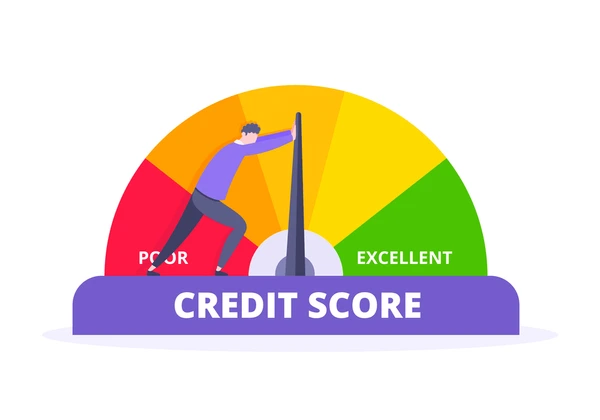Understanding credit scores is essential for financial well-being. A key aspect of personal finance, these scores determine borrowing eligibility, interest rates, and overall financial health. This comprehensive guide will help Americans grasp the intricacies of credit scores and take control of their financial future.
In the U.S., credit scores are a central element of financial life. This guide will shed light on what credit scores mean, how they are calculated, and methods to improve them. With this information, Americans can make informed financial decisions and achieve their economic goals.
What is a credit score?

A credit score is a numerical representation of an individual’s creditworthiness. Lenders use this number to assess the risk of lending money or extending credit. The score typically ranges from 300 to 850, with higher scores indicating better credit health. Credit scores are determined by various factors including payment history, amounts owed, length of credit history, new credit, and types of credit used.
Each of these elements plays a critical role in shaping a person’s creditworthiness. Understanding these components allows individuals to take proactive steps to maintain or improve their credit scores, ultimately gaining better terms for loans and credit lines.
Payment history
Payment history is the most significant factor affecting a credit score, accounting for about 35% of the total score. It reflects whether a person has paid past credit accounts on time. Late payments, foreclosures, and bankruptcies can severely damage a credit score. To improve or maintain a good payment history, it’s crucial to pay bills promptly.
Setting up reminders or automatic payments can prevent missed payments and ensure a positive payment record. A consistent record of on-time payments will boost your credit score and make you a more attractive candidate to lenders.
Amounts owed
The amounts owed, also known as the credit utilization ratio, is the second most crucial component of your credit score, accounting for approximately 30% of it. This ratio represents the total debt you owe in relation to your total credit limit. Maintaining your credit utilization below 30% is highly advisable.
This means that if you have a credit limit of $10,000, you should aim to owe no more than $3,000 at any given time. Carrying high balances on your credit cards can signal to lenders that you are at a higher risk of default, which can consequently lower your credit score.
To effectively manage your credit utilization rates, it is essential to regularly monitor your credit card balances and make consistent efforts to pay down your debt. This proactive approach can help ensure that your credit utilization remains within a healthy range, thereby positively influencing your overall credit score.
How to improve your credit score
Enhancing your credit score is achievable with consistent and responsible financial habits. Start by checking your credit report regularly to ensure accuracy and identify areas for improvement. Correcting any errors on your report can boost your score quickly. Furthermore, focus on paying down high-interest debts first and keep new credit applications to a minimum.
Building a diverse credit portfolio with a mix of credit types, such as installment loans and revolving accounts, also helps. Overall, maintaining disciplined credit behavior and avoiding unnecessary financial risks can lead to significant improvements in your credit score.
Checking your credit report
Regularly reviewing your credit report is essential in managing your credit health. By law, Americans are entitled to one free credit report annually from each of the three major credit bureaus—Equifax, Experian, and TransUnion. By taking advantage of this entitlement, you can keep a close eye on your credit history, ensuring that all the information reported is accurate and up-to-date.
Checking your report allows you to spot errors or fraudulent accounts that can negatively impact your credit score. If discrepancies are found, promptly dispute them with the credit bureau.Staying informed about your credit report helps detect and correct inaccuracies, contributing to a healthier credit score.
Building and maintaining good credit
Building good credit takes time and discipline. Start by obtaining a secured credit card or a small installment loan. Use the credit responsibly and make payments on time to establish a positive credit history. Once you have some credit history, work on maintaining it.
Avoid closing old accounts, as the length of credit history accounts for 15% of your score. Minimal credit inquiries and prudent management of existing credit can go a long way. Staying committed to these habits will foster a strong credit profile, making future financial endeavors smoother and less costly.
